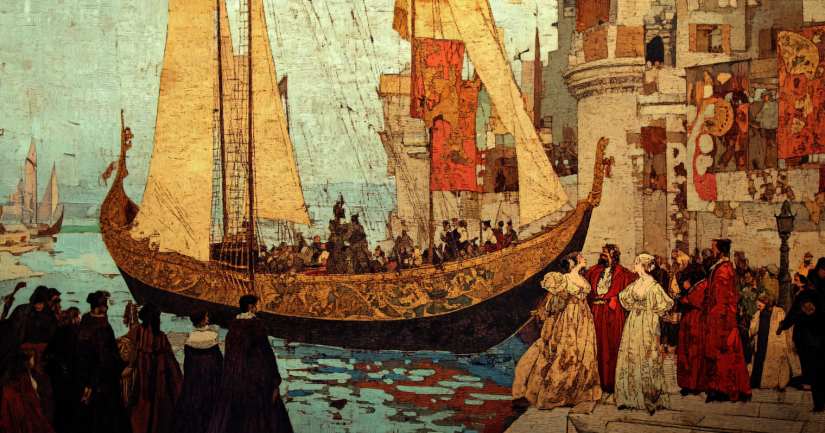
Exploring Shakespeare’s word choices opens a whole new level of appreciation for his craft, and the Merchant of Venice Vocabulary Quiz helps spotlight how specific phrases, metaphors, and rhetorical flourishes shape both meaning and mood. In this play, vocabulary isn’t decorative it’s strategic. Each word carries emotional weight, legal consequence, or social implication. What a character says, and how they say it, reveals just as much as any plot twist or costume change.
From legalese to lyrical love speech, from bitter sarcasm to formal declarations, Shakespeare crafts his dialogue in *The Merchant of Venice* with deliberate linguistic control. The words of Shylock, Portia, and Antonio are saturated with tone respectful, accusatory, ironic, or pleading. The Merchant of Venice Vocabulary Quiz emphasizes how precision of language builds tension and influences the audience’s alignment with or against certain characters. Understanding the vocabulary helps decode the subtext, power dynamics, and subtle irony beneath each exchange.
A strong vocabulary makes Shakespeare easier to understand so why not take it further? Try the Merchant Of Venice True Or False Quiz to test your instincts. If quotes are your thing, see how many famous lines you can match with the Merchant Of Venice Quote Identification Quiz. And for the ultimate challenge, tackle the Merchant Of Venice Full Book Quiz to see how much you truly remember!
What makes Shakespeare’s vocabulary so effective is not just its poetic beauty but its elasticity. He shifts tone and rhythm mid-sentence, repurposes familiar terms into biting critique, and layers multiple meanings into a single line. The Merchant of Venice Vocabulary Quiz enables deeper engagement with this artistry. Knowing the definitions is only part of the experience it’s about understanding why those words were chosen and how they transform the emotional temperature of a scene.
Legal Language as Dramatic Power
One of the most striking uses of vocabulary in *The Merchant of Venice* is the courtroom scene in Act 4. Here, Shakespeare leans into legal jargon to heighten suspense and to reinforce the drama of justice versus mercy. Terms like “bond,” “forfeit,” “penalty,” and “entreat” take on moral weight. They are no longer neutral legal references they become tools of cruelty or redemption, depending on who uses them and how.
Portia’s rhetorical precision allows her to dismantle Shylock’s claim not through emotion, but through exact interpretation of contractual language. “A pound of flesh,” though repeated often, is never allowed to include blood and this technicality changes the course of the trial. The Merchant of Venice Vocabulary Quiz encourages close reading of this vocabulary, not just to define the words but to understand their theatrical impact. Legal language in this play is not just about law; it’s about power, and who is allowed to speak with authority.
Religious and Cultural Lexicons
The vocabulary of religion permeates the dialogue, often weaponized to draw boundaries between Christian and Jewish identities. Words like “mercy,” “usury,” “synagogue,” and “gentile” are loaded with social meaning. Shylock’s use of “Hath not a Jew eyes?” is a direct challenge to religious stereotyping, delivered through a rhetorical series of questions that break down cultural barriers through shared humanity.
However, the Christian characters use religious terms in more self-serving ways. Portia’s appeal to mercy borrows from Christian doctrine but is applied selectively. Antonio invokes Christian patience while showing little empathy. The Merchant of Venice Vocabulary Quiz draws attention to how Shakespeare’s characters use spiritual language not just for devotion but for manipulation and moral justification. Recognizing this coded language is essential for understanding how religion shapes both conflict and character in the play.
Commerce, Risk, and Maritime Metaphor
Venice, as a hub of trade, infuses every conversation with the language of commerce. Words such as “venture,” “argosy,” “credit,” and “bargain” are used as naturally as modern financial terms. Antonio’s business is built on ships and his identity, like his fortune, is always at the mercy of the sea. When he speaks of his sadness, his friends immediately assume it’s linked to the fate of his ventures, not his emotions.
These economic metaphors also extend into Bassanio’s courtship of Portia. He describes love as investment, using the metaphor of shooting an arrow to recover another lost one. This blend of romance and transaction reveals how deeply capitalism has shaped even the language of desire. The Merchant of Venice Vocabulary Quiz emphasizes these lexical choices, illustrating how Shakespeare’s characters think, speak, and feel through a commercial lens.
Love’s Poetic Register
When Portia and Bassanio finally meet in Act 3 Scene 2, Shakespeare’s language shifts. It becomes lush, lyrical, and emotionally sincere. Words like “altar,” “vow,” “lord,” and “self” echo through their exchange, evoking the gravity of their union. Yet even this poetry contains formality and structure Bassanio’s declarations come only after passing
Merchant of Venice Quizzes – Will you get your pound of flesh?
